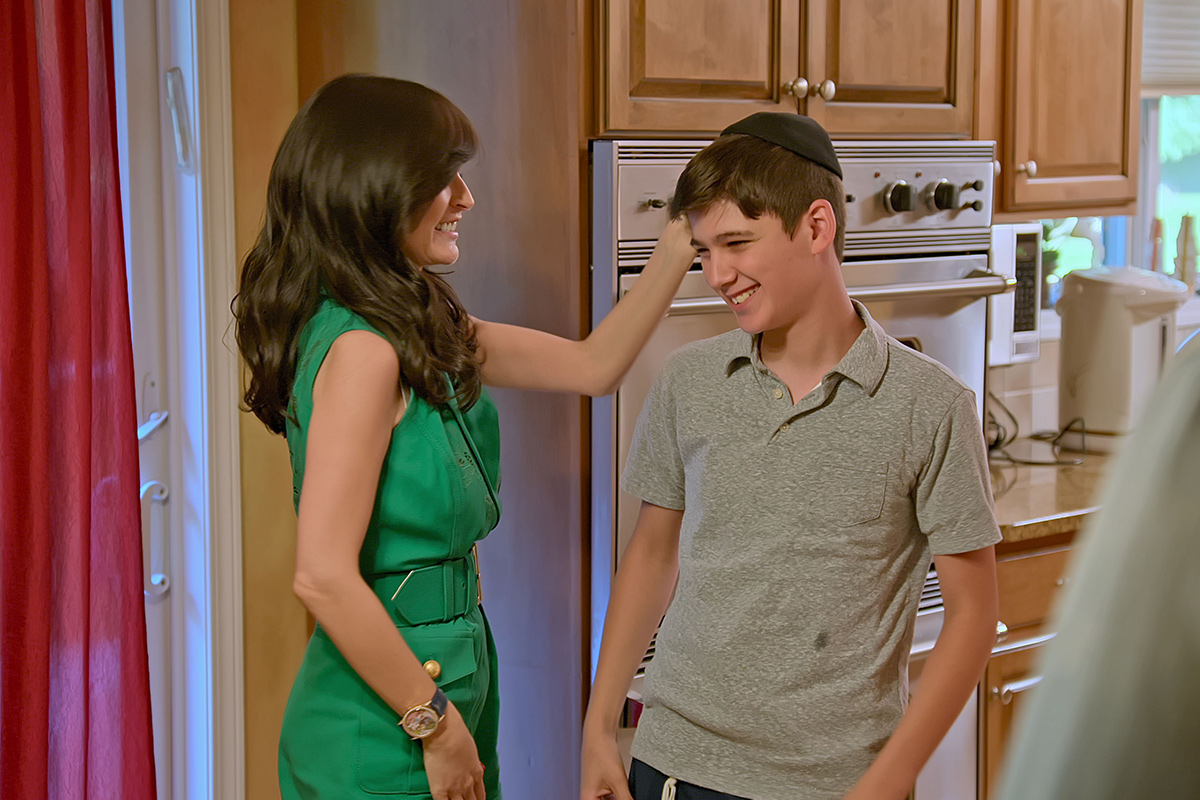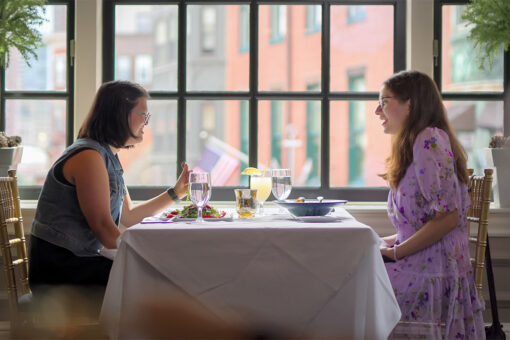I often ask my literature students to consider whose stories get told, whose voices are silenced, and which power structures determine this. It’s a question worth asking in the context of the new Netflix reality series “My Unorthodox Life,” which has seemed to upset Orthodox and ex-Orthodox people in equal measure.
Many Orthodox people believe that stories of the ex-Orthodox get told over and over while voices of the Orthodox are silenced. But that complaint is almost always raised in an attempt to silence ex-Orthodox stories, rather than to amplify Orthodox ones — and it often maligns ex-Orthodox individuals in the process, as Nisi Goldstein so eloquently explains in a Facebook post. Although there is room for all kinds of stories about Orthodox and ex-Orthodox experiences, many power structures present obstacles to telling all these stories. Acknowledging them might enable people to change or circumvent these obstacles.
The most obvious obstacle is that ex-Orthodox stories are told for secular audiences who revel in someone else’s escape from oppression and in the satisfaction that “we aren’t as crazy as those Jews,” because looking down on Orthodox Jews has become “acceptable antisemitism.” The white western liberal Christian who makes up the majority of the American audiences for these stories is less interested in seeing the personhood of Orthodox individuals than in affirming their own superiority. The narrative of freeing people, especially women, from oppressive religion fits nicely with white western feminism, which leads to the celebration of women taking off their sheitels (wigs) or hijabs (Muslim head covering), but not the celebration of women choosing to don them. This is a huge problem in the entertainment industry, one that affects even stories told in good faith — a requirement that “My Unorthodox Life,” a staged and manipulated reality show, does not meet.
The second obstacle comes from the power structures of Orthodox leadership and boundaries of belonging. Despite claims to the contrary, ex-Orthodox stories criticizing Orthodoxy need to be told. There are many things to criticize about the Orthodox community (just like pretty much every other community), and the people who leave deserve to have their voices heard and their stories told. And who knows — maybe if we keep telling these stories, someday Orthodox leadership will listen and address the problems within the community that cause so many to leave.
The topics discussed at the Agudah National Convention, an annual convention organized by the Agudath Israel of America where leaders of Orthodox communities across America discuss issues of the day, or the Torah Umesorah Convention, an annual convention for Orthodox teachers and principals — and the causes that garner their own asifahs (gatherings) and kol korehs (calls to action) — all affect which stories are deemed acceptable, who is an “insider” or “outsider” to Orthodoxy, who is allowed to voice criticism, and who is just disgruntled, bitter and not worth listening to. The view of Orthodox leadership is clear in their responses to criticism: Someone who follows the dictates of Orthodox leadership is allowed to voice criticism. But someone who voices criticism against Orthodox leadership is no longer considered a legitimate voice speaking for the community. This is a ridiculous Catch-22, but it is an effective method for shutting down criticism of a closed system like Orthodox Judaism.
Another obstacle to telling stories of Orthodox joy for mainstream audiences comes from the people who might write these stories. Many Orthodox Jews rightly note mainstream audiences’ eagerness for stories about breaking free from oppressive religion and conclude that there is no audience for other kinds of stories about Orthodox life. As the Israeli show “Shtisel” proves, this is not entirely true. Only one character early on in that show contemplates transgression of halakha (Jewish law), but none of the characters’ struggles center on breaking free from Orthodox Judaism. Akiva struggles in pursuit of his artistic career and in his quest for a passionate love in addition to a good match, but he never entertains the thought of leaving Orthodoxy for the secular world. These stories can be told about American Orthodox Jews as well, and “Menashe” is one such film which tells the story of an Orthodox man and his son in the Orthodox enclave of Borough Park, Brooklyn. The film did not receive as wide a reception as ex-Orthodox stories, in part because it is mostly in Yiddish with English subtitles. But these are evidence that there is an audience for more Orthodox stories, and the obstacles of funding and market decisions are surmountable, if still difficult.
Compounding this is that the current desire to tell Orthodox stories stems from a desire to silence ex-Orthodox stories. Every ex-Orthodox story is followed by hashtags on social media from Orthodox people asserting their Orthodox joy. But as has been rightly pointed out, stories without conflict don’t make compelling narratives. In order to portray Orthodox joy on screen, there still needs to be some sort of conflict. There is a misconception about the kinds of conflicts available to storytellers, however, in part because the Orthodox mode of storytelling is based on inspiration embedded with ideology. It is difficult for those raised on this kind of storytelling to imagine telling stories that don’t center on religious struggle and triumph, especially when coming from a desire to squash legitimate stories of unhappiness. But Orthodox literature for teens, like the “Baker’s Dozen” series or the “Cheery Bim Band” series — and even the Devora Doresh series which uses Torah knowledge to solve mysteries — already contains many of these stories, which can easily be adapted as books, movies and TV shows for wider audiences.
This leads to the final obstacle I’ll address. As Country Yossi’s 1983 song “Cause I’m a Jew” demonstrates, Orthodox Jews often see themselves as much different in contrast to the general public, which leads to a defensive position rather than a celebratory one. If the drive to tell stories comes from defending rather than celebrating, the stories will not be compelling. Audiences know when they are viewing ideological propaganda rather than a good story well told. The current trend in mainstream literature, especially in books for children and teens, is to celebrate diverse identities. This is the perfect moment for stories celebrating Orthodox people as fully-formed people whose lives are worth knowing. In order to sell these stories, Orthodox writers need to write authentically, rather than from a position of defense.
It’s important to tell Orthodox stories to counter the rising antisemitism in America and around the world. It’s equally important to tell authentic ex-Orthodox stories, because understanding the emotional journey of leaving any religious group is crucial as more Americans of all faiths do so. All of these stories have a place on the stage of American entertainment media, and none of these voices ought to be silenced.
As an ex-Orthodox Jew myself, I can’t wait to see Borough Park and Bais Yaakov stories, among others, told from multiple perspectives. Overcoming obstacles from the entertainment industry, boundaries of belonging and Orthodox defensiveness will enable all of these stories to co-exist and to represent a complex, nuanced picture of a complex, nuanced group of communities.



